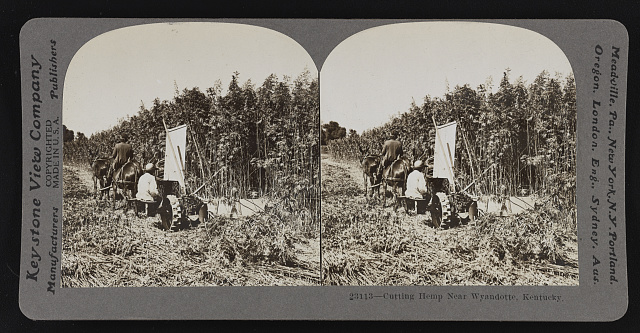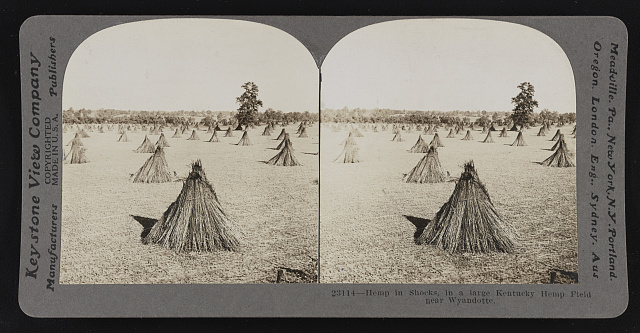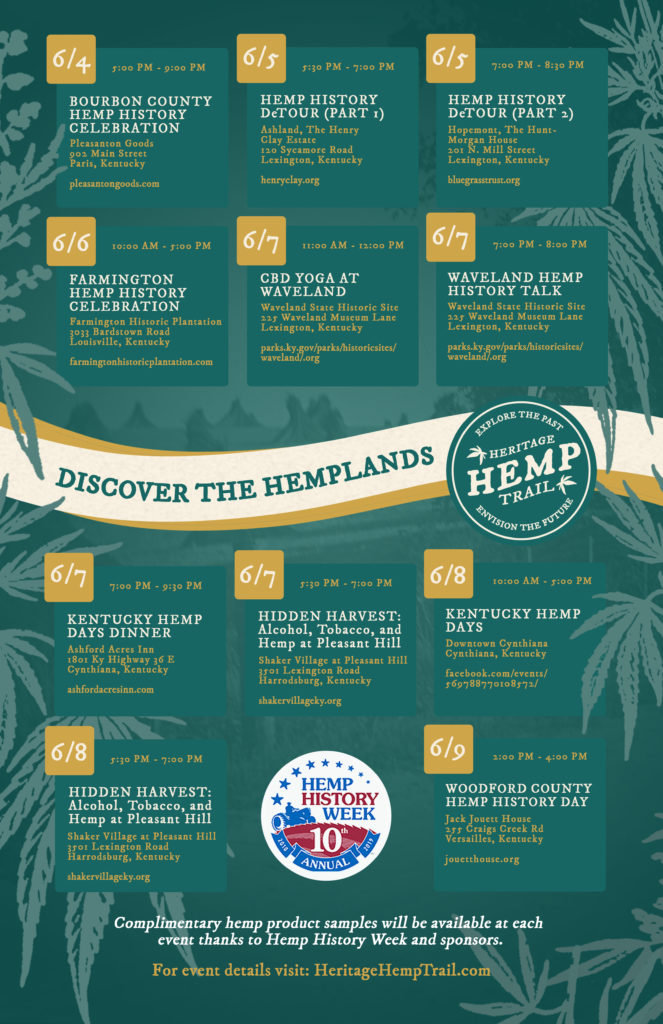J. Michael Moore, Farm Manager
As you drive the countryside and croplands of Kentucky, there’s something new appearing on the landscape – industrial hemp. While for many Kentuckians this may seem like a new development in agriculture, hemp was once an important cash crop for the Commonwealth and has a long history of being grown for its valuable fiber.

The Pleasant Hill Shakers built their first hemp mill in 1811, just five years after the community formally organized. The Shakers would have relied on hemp as a resource to support many of their industries, as seen in the hemp twine used to bind their famous Shaker Brooms. The Shakers of Pleasant Hill were famous for their trade, and hemp rope would have been used to strap down cargo on flat-bottom boats that traveled along the river banks of Kentucky River and beyond. Indoors, the Shakers even relied on hemp cord to suspend the mattresses on their beds!
Records show that in 1883 the Pleasant Hill Shakers sold 40,000 lbs. of hemp (for just $2,000!)

Courtesy of Library of Congress
Hemp has deep roots in the history of our state, and of the Kentucky Shakers. This summer, we have an opportunity to bring that history back to life.
In December 2018, Congress passed the 2018 Farm Bill, which included legislation that removed hemp from the list of controlled substances, legalizing the crop nationwide. After nearly 50 years of prohibition, farmers are now free to grow hemp once again.
A few details you should know as we discuss hemp:
- With less than 0.3% THC (tetrahydrocannabidiol), the intoxicating component of marijuana, hemp can’t get you “high,” but it can get you healthy.
- The hemp seed is considered a “super-food”, packed full of many nutrients and minerals needed by the human body.
- Hemp fiber can be used to make thousands of sustainable products, from building materials to natural fabrics, that are less toxic and better for the Earth.
- Hemp flower produces high amounts of cannabinoids, with therapeutic benefits.
This year, hemp will return to Shaker Village for the first time since the 19th century, as part of the Kentucky Hemp Program. We’re excited to feature hemp as part of our “Kentucky Cash Crop Garden” which will highlight crops like Sorghum, Industrial Hemp and Burley Tobacco.
Guests can learn about hemp, and other Kentucky cash crops, during our $5 after 5pm program: Hidden Harvest: Alcohol, Tobacco, and Hemp at Pleasant Hill which runs from June through August, every Friday and Saturday evening at 5:30 PM.

Shaker Village joins more than 20 other historic sites and locations across the Bluegrass featured on the Heritage Hemp Trail, a journey through the Kentucky hemplands.
The trail is an initiative of the Kentucky Hempsters, the Kentucky Hemp Heritage Alliance and its affiliates across the state dedicated to the preservation and promotion of the state’s rich hemp history. Including the Farmington Historic Plantation in Louisville, Hopemont, The Hunt-Morgan House in Lexington and others, the Heritage Hemp Trail highlights the pioneers, places, and pieces of hemp history that build the foundation for the crop’s revival.
We hope you will join us this summer to learn about the fascinating history, and important future, of hemp in Kentucky!